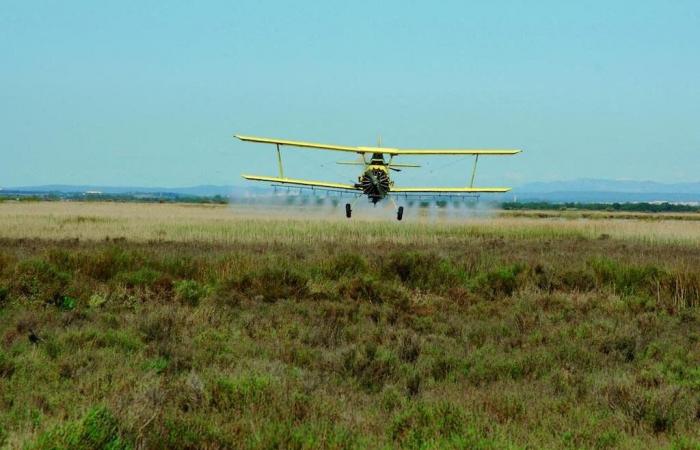Par
Metropolitan Editorial
Published on
June 27, 2024 at 1:28 p.m.
See my news
Follow Metropolitan
Mosquito control in Occitania is the theme of a public event organized in Montpellier, this Wednesday July 3, 2024 by the University of Montpellier and the Regional Chamber of Accounts -CRC- Occitanie. The president of the University of Montpellier, Philippe Augé and the president of the Occitanie Regional Chamber of Accounts, Valérie Renet will thus launch a round table at the Institute of Botany of the University of Montpellier. Around the subject of mosquito control which is current in Hérault which is in red, the two institutions will combine their views and work.
Research work from the laboratories of the University of Montpellier and the investigation that the financial magistrates will publish on the Interdepartmental Mosquito Control Agreement, the EID-Mediterranean, will be presented. Speakers will be Didier Fontenille, emeritus research director of the IRD, University of Montpellier, Isabelle Houvenaghel and Alain Le Bris, magistrates of the CRC Occitanie.
What are the missions of the EID?
EID-Med’s missions are essential to the living environment and human activities on the coastal strip. First, the central mission of control of nuisance caused by mosquito species targeted, from coastal and retro-coastal wetlands. Then, a mission of public health, justified by the progressive establishment, over the past fifteen years, of the tiger mosquito, a potential vector of arboviruses. And then, EID-Med invests in conservation and management of natural environmentsas well as protection and management of the coastline, helping to enhance our coastline and make our region a pleasant place to live for residents and visitors alike.
“Water is at the heart of the process of egg hatching and development of mosquito larvae. If in coastal and retro-coastal wetlands, 70 to 75% of impoundments result from natural factors (rain, marine inflows due to southerly winds), the remaining 20 to 25% are artificial, due to humans ( irrigation, mainly). As for species growing in urbanized areas, they benefit from all types of watering, natural or instrumented for domestic needs, in public spaces as well as in the private domain, as well as from the negligence consisting of leaving them lying around. open air any containers or objects that can collect water… Fighting against harmful mosquitoes means, depending on the situation, treating, but also preventing and managing.
EID based in Montpellier
Nuisance control is the central mission of EID Méditerranée, for which it was created in 1959. It is based in Montpellier. A control being a balance, this mission is lasting: every year, for 60 years, the profession has been put back into the work. It is a selective control, mainly targeting the two species that bite humans and move over long distances, from their breeding wetlands to agglomerated areas, on the coast and upstream of it, where the Man resides and produces most of his activities. This approach is based on a precisely codified and widely tested operating mode, the conduct and traceability of which have justified the QSE certification of the establishment, as well as all its other activities.
Sus the tiger mosquito
The arrival in mainland France of tiger mosquito Aedes albopictus, in 2004, urban mosquito, potential vector of arboviruses such as chikungunya, dengue or Zika, and its continued expansion (60 departments concerned since 2020) justified the implementation by the State of an anti-dissemination plan of these diseases in 2006, including a vector control system (LAV) consisting, as soon as suspected or confirmed cases are identified, of breaking any chain of transmission. Since then, EID Méditerranée has been the operator, for surveillance, entomological surveys and treatments, successively of the departmental councils of Occitanie, Paca and Nouvelle-Aquitaine then, this action having been centralized in 2020, of the Regional health agency -ARS- of Paca.
Dune systems
The activities carried out by the Littoral pole of the EID Méditerranée, in particular the rehabilitation of dune systems, contribute to reducing the flooding of the breeding grounds of the targeted species of harmful mosquitoes. Furthermore, these areas are subject to strong anthropogenic pressures, which have resulted in their fragmentation and have accentuated certain natural processes such as the retreat of the coastline and marine submersion. To provide an effective response to communities, EID-Med’s coastal activities have diversified and formalized according to a strategy based on solid expertise, in terms of advice and innovation.
Follow all the news from your favorite cities and media by subscribing to Mon -.






